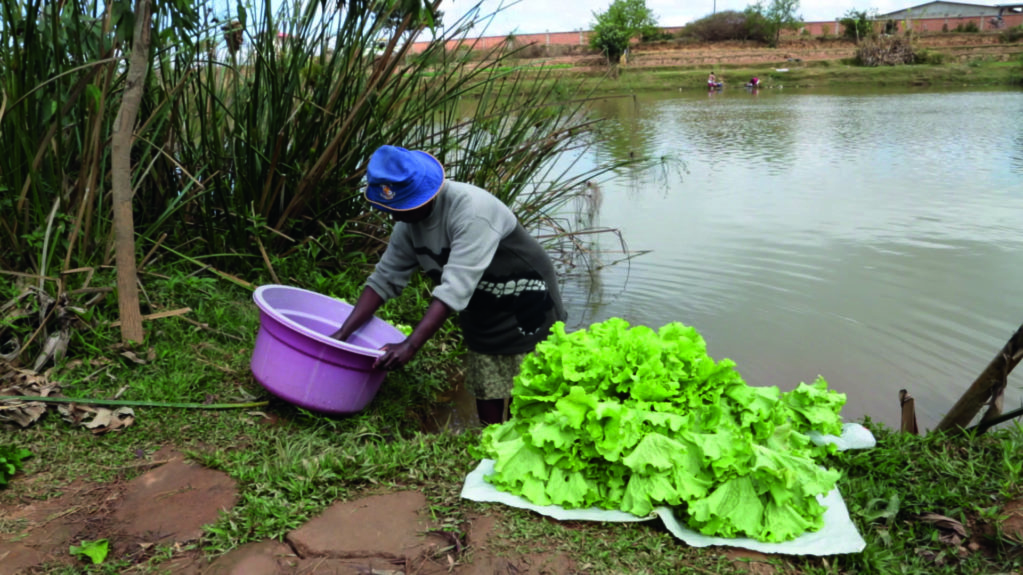The dining room table is set, with three pieces of cutlery on each side of the dinner plates. The wine is flowing and hors d’oeuvres are being served. The CEO of Guanomad, Eric Rajaonary, sits at the head of the table with his CFO, Anja Randrianalison, to his left and his sales team to his right. Tonight, they are celebrating their nomination by the Africa Awards for Entrepreneurship (AAE).

Less than a month later, this growing company based in Antananarivo, Madagascar, beat 11 other companies from the rest of the continent to be named the most outstanding small and growing business for 2013 by the AAE. The product that earned them this accolade—bat droppings.
“It all began in 2005, where, after a few discussions about the possibility to find bat guano in Madagascar, and inspired by the Peruvian seabirds guano, I decided to make a 180-degree career change in setting up my own company,” says Rajaonary.
The former accountant saw potential in the fertilizer business and ventured into the southern caves of the island in the Indian Ocean to look for bat guano. In the first year of production, the company sold only 400 tons of compost. Today, the company produces 1,500 tons of guano a year with exports to Europe, Canada and the Caribbean. This year, the target is Africa.
Dinner is served, but before anyone can take a bite of their meal, Rajaonary makes a toast to his team and, of course, the bats of Madagascar. In a country known as one of the poorest in the world according to the World Bank, Guanomad is an example of how one simple idea can provide work for hundreds of people.

Although Rajaonary was born in Madagascar, he spent a large part of his life in France as a student and then an accountant. In 1998, he left Europe and moved back to Madagascar looking for opportunities in the private sector. Leaving Europe was a big risk, but one he urges other African entrepreneurs working abroad to take.
“Agriculture, new technology, health and education. Africa has the brainpower. The continent needs these people to come back. However, these people need better incentives,” he says.
What really makes the company stand out is Rajaonary’s dedication to helping his community and building a self-sustainable economy. Madagascar has one of the worst malnutrition rates in the world with nearly half of its population of 20 million not getting the required food to live healthy lives, according to the National Nutrition Office (ONN), a government body aimed at eradicating this problem.
Rajaonary believes that Guanomad is a solution because it helps grow crop throughout the country and if used correctly, could help feed millions. The company goes so far as to train local farmers on how to use the product and often gives tons of Guanomad away for new farmers to try.

Unlike chemical fertilizers, Guanomad doesn’t damage the soil or contaminate any of the waterways through nitrification, says Mirana Rakotovelo, the director of marketing and communication. The product is 100% environmentally friendly and can even help repair damaged soil in some cases.
These values of giving back to the community are also felt in the Guanomad offices.
“We really feel at ease working in a friendly atmosphere,” says Guanomad employee, Christian Rahelison, who recently joined the team.
“Secondly, working in an environment like this affects us positively, not just as work but our quality of life as well. There is just less stress,” he adds.
As the celebrations for their nominations continue, Rajaonary turns to the DJ and instructs him play some Zamba tracks—an Argentinian style of music. The staff gathers on the dance floor and start dancing to the moves on the screen. Most of the female employees take the lead as the male employees shy away from moving their hips. Rajaonary, however, isn’t afraid and makes his way into the front of the row ready to jive with the best of them.
The entrepreneur says he doesn’t intentionally try to make the company feel like a family, but the relationship between the top management and all the employees is based on trust which makes everybody feel at ease.
He thinks the future is bright for Guanomad and attributes much of his success to innovation and good management. He also believes that being a socially responsible company, tends to work in his favor as it builds a relationship with the local farmers and people of the country.
As the night winds down, Rajaonary keeps dancing and spurs his staff to do the same. Most of the team moves outside for a break. Everyone is smiling and when the boss comes out to join them, the level of enthusiasm remains the same.
The team moves to the entrance of the house where five vehicles are waiting to take everyone home. It’s an all-round good feeling, except that work starts at 9AM the next day. The team dread the morning wake-up call, but they know Rajaonary will be the first at work and they don’t want to let their boss down.
